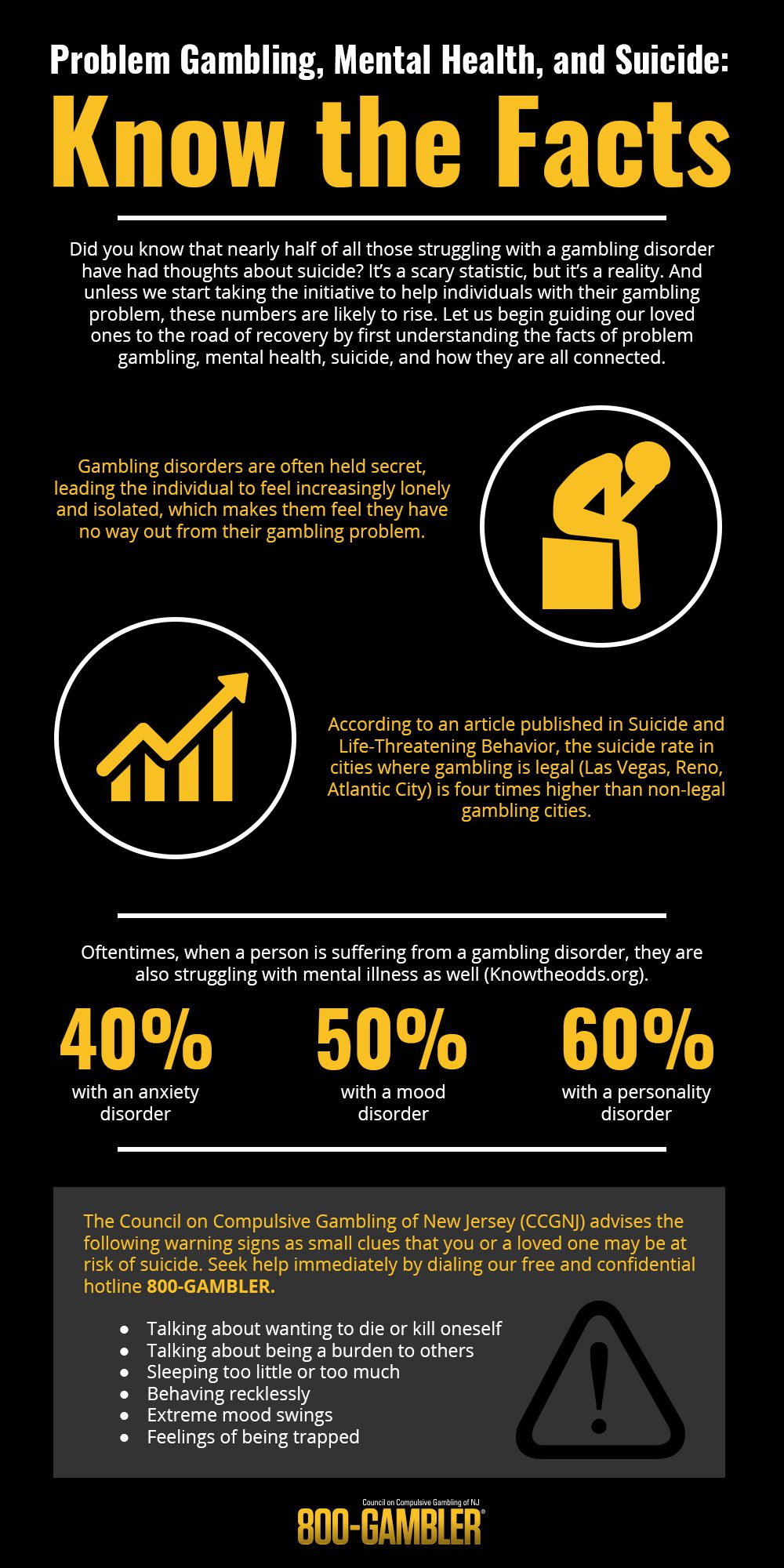According to recent reports, nearly half of all individuals battling a gambling disorder claim to have occasional or even daily thoughts about suicide. This number is staggering, which is why we at the Council on Compulsive Gambling of New Jersey are spreading awareness about suicidal behaviors and their impact on disordered gamblers.
At the CCGNJ, we’ve known about the destructive consequences that alcohol use disorder, sometimes referred to as an addiction, and gambling have in Trenton and the rest of the state. With the latest findings on problem gamblers who battle mental health issues, we are now extending our efforts to help more people in need.
In this post, we’ll explain how disordered gambling can lead a person to have suicidal thoughts and behaviors, which in turn, can magnify the severity of his or her gambling behaviors. We’ll also give some resources you can contact for help if you or a loved one has a gambling disorder or is showing signs of self-destructive actions.

Feeling Helpless
Those who struggle with addiction, whether it be to alcohol, drugs, or even gambling, often feel helpless and find it increasingly difficult to seek help. As their dependence continues, their situation can worsen, with one problem leading to another.
For many gamblers, including those participating in newly-legalized sports betting in Atlantic City, their betting behaviors start out innocently, but can easily spiral out of control. Once their gambling crosses the threshold and becomes a disorder, their lives can deteriorate quickly. They often lose their social status and see their closest relationships fall apart. With little money and nobody to reach out to, a gambler can experience depression and suicidal thoughts.
When a disordered gambler has these feelings, their gambling tendencies may become riskier, which can intensify and accelerate their problems. It is imperative that they get help at this stage, or they may never recover.
Taking the First Step
For anyone struggling with mental health issues, including depression and suicide, taking the first step toward recovery is often the most difficult. Feelings of loneliness and becoming a burden can overwhelm a person, preventing them from reaching out for help.
If a loved one or someone you know is experiencing signs of depression, suicidal tendencies, or disordered gambling, let them know they are not alone. Contact our 24/7 helpline today at 800-GAMBLER to get in touch with someone who can help.


